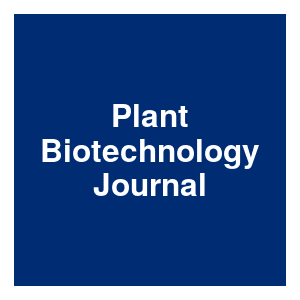Insect pest management in the age of synthetic biology

|
R. Mateos Fernández, M. Petek, I. Gerasymenko, M. Juteršek, Š. Baebler, K. Kallam, E. Moreno Giménez, J. Gondolf, A. Nordmann, K. Gruden, D. Orzaez and N. J. Patron,
Plant Biotechnology Journal,
2021.

Arthropod crop pests are responsible for 20% of global annual crop losses, a figure predicted to increase in a changing climate where the ranges of numerous species are projected to expand. At the same time, many insect species are beneficial, acting as pollinators and predators of pest species. For thousands of years, humans have used increasingly sophisticated chemical formulations to control insect pests but, as the scale of agriculture expanded to meet the needs of the global population, concerns about the negative impacts of agricultural practices on biodiversity have grown. While biological solutions, such as biological control agents and pheromones, have previously had relatively minor roles in pest management, biotechnology has opened the door to numerous new approaches for controlling insect pests. In this review, we look at how advances in synthetic biology and biotechnology are providing new options for pest control. We discuss emerging technologies for engineering resistant crops and insect populations and examine advances in biomanufacturing that are enabling the production of new products for pest control. More related to this: Genetics-based methods for agricultural insect pest management Engineering Bugs, Resurrecting Species: The Wild World of Synthetic Biology for Conservation Gene drives, species, and compassion for individuals in conservation biology Gene drive: Evolved and synthetic Gene drive: progress and prospects Socrates Untenured: Ethics, Experts, and the Public in the Synthetic Age
|



